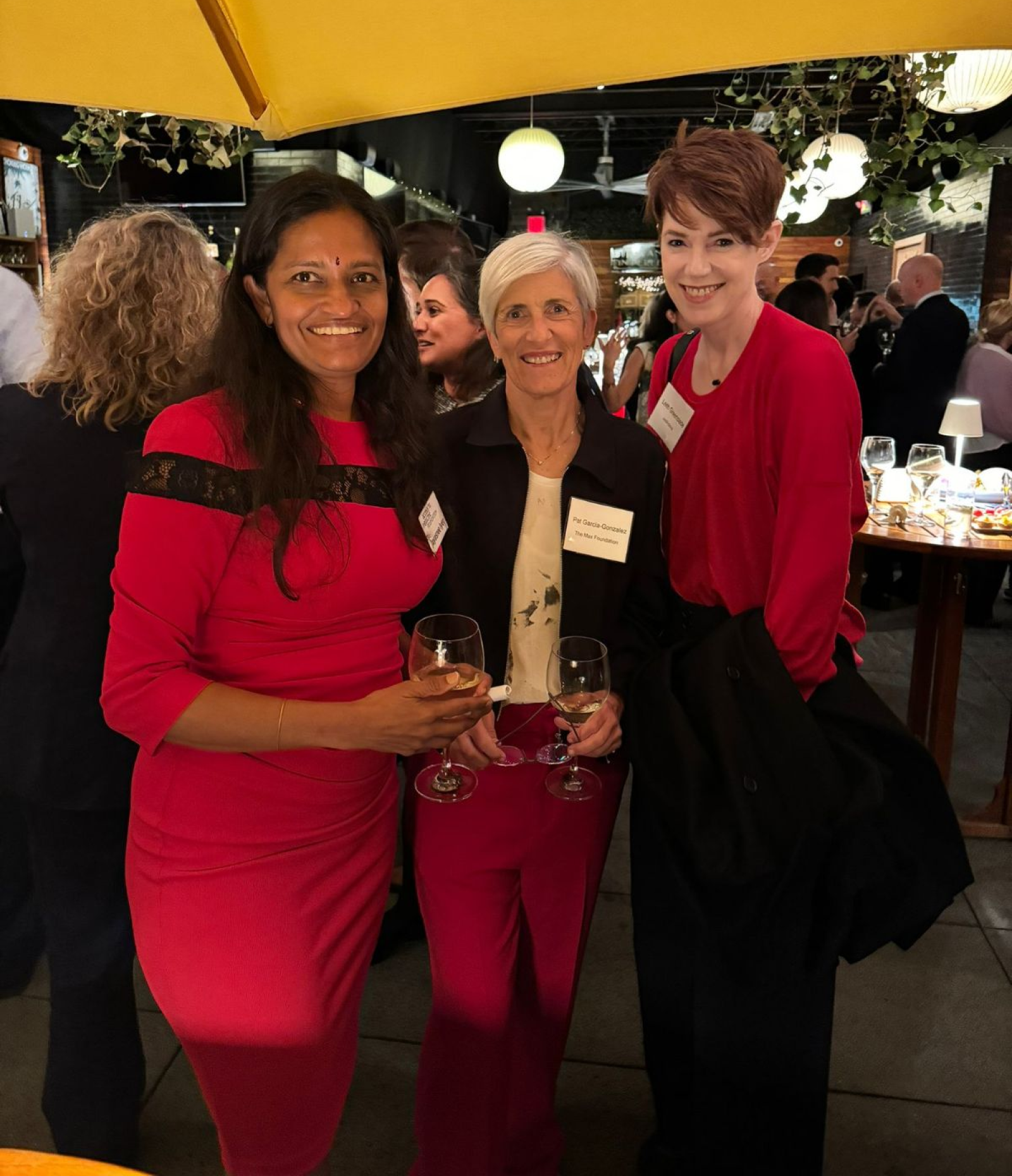In conversation with Leith Greenslade: Health Equity through Her Lens
Recently, we launched “Health Equity through her Lens” – a campaign amplifying women leaders’ voices to drive action and keep women’s health a global priority. To kick off this series, we invited Leith Greenslade, Founder & CEO of JustActions and a passionate advocate for women’s and children’s empowerment, for a chat with the Foundation's CEO, Jayasree K. Iyer. Leith's work has been critical in shaping solutions for women’s health globally. She is a mother of three daughters, obsessed with documentary film making and mid-century modern architecture and design.
In this conversation, we explore what it takes for women to close the health equity gap, the role of the healthcare industry, and the actions needed to ensure no woman is left behind.
Let’s dive in.
The participants:
JI - Jayasree K. Iyer, CEO, Access to Medicine Foundation
LG - Leith Greenslade, Founder & CEO, JustActions
JI
What do you believe women in all walks of life can do to make the change on addressing health equity globally?
LG
What first comes to mind is Amartya Sen’s provocative statement that "women everywhere need to be more selfish; that women’s tendency to self-sacrifice – especially for their families – is ultimately counterproductive for women and for society".
So, I would start by appealing to women – especially to those who may be living in societies where women putting themselves last is regarded as virtuous behaviour – to start putting their own health first, physically and mentally. This means prioritising a good diet, regular exercise and a rewarding life – with education, paid employment and control over one’s own money. And when they get sick, seeking care quickly – don’t delay.
JI
If a woman were to start making a change today to improve health outcomes for herself and her community, where would you advise her to begin?
LG
At JustActions we talk about “the 10 decisions that every mother must be free to make” – it’s a kind of prescription for good health. If I had to pull out one of them it would be education – literacy – which sounds strange because we are talking about health. But study after study shows the profound impact of women’s education on child survival – each additional year of school reduces child death by 3%. Health equity everywhere starts with at least a high school education for all girls.
JI
What is your message to the healthcare industry on what they can do to address health equity, especially for women and girls globally?
LG
The healthcare industry must prioritise solutions that target the leading causes of early death among the vast majority of women who live in low- and middle-income countries. If you look at what is killing women under 70 in these countries, it’s still a host of infectious diseases (HIV/AIDS, malaria, TB, pneumonia, diarrhea, meningitis – and childbirth.) So we need the healthcare industry to develop vaccines that can prevent these conditions, devices to diagnose them and medicines to treat them – and then make them affordable.
When you look at the biggest risk factors for death among the same women, it’s unsafe sex, air pollution, dietary risks, high blood pressure, high BMI and hyperglycemia.
“So the industry also needs to be working on solutions to reduce women’s exposure to these risks.”
JI
If you could offer one piece of advice to the healthcare industry today, what should they prioritise as we approach 2030 to make the most impact on global health?
LG
I’m very excited about the new Global Health 2050 framework of 15 priority conditions and getting governments and global health agencies to focus their energies on this – industry should jump on that train now. I think by now most of the healthcare industry feels some sense of responsibility for doing their part in achieving the Sustainable Development Goals by 2030. Most have certainly tried a lot of different approaches to increase access, as the Access to Medicines Index attests. But in the sprint to 2030, now is the time for the industry to get razor focused on access to the products that target the leading threats to survival for the majority of the world’s women who live in low-resource settings.

Talking to Leith reinforces the importance of this campaign, and emphasises the need for collaborative action from industry and governments.
We invite you to be part of this movement. Amplify this conversation on social media so it reaches the decision makers who can drive real change. Together, we can turn health equity from a conversation into a reality for our sisters, daughters, nieces and mothers.